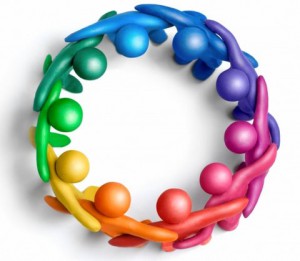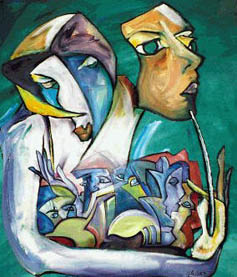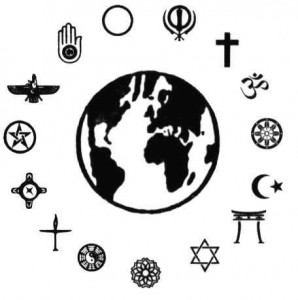 It is my continuing effort to promote the concept of “unschooling”, the process of learning from real life, outside any formal learning environment, and without a teacher. It is a mostly unsung method of human development that often gets short shrift compared to more formal modes and venues for education. We conventionally think of education and learning as an activity focused on our younger years, but at our bests we humans continue to be natural and voracious learners throughout our lives. We are beginning to acknowledge that human propensity with the concept of “lifelong learning”.
It is my continuing effort to promote the concept of “unschooling”, the process of learning from real life, outside any formal learning environment, and without a teacher. It is a mostly unsung method of human development that often gets short shrift compared to more formal modes and venues for education. We conventionally think of education and learning as an activity focused on our younger years, but at our bests we humans continue to be natural and voracious learners throughout our lives. We are beginning to acknowledge that human propensity with the concept of “lifelong learning”.
As I have said before, becoming familiar with the concept of unschooling reading works by John Holt, Pat Farenga, Matt Hern and John Taylor Gatto, I have been taking a long look back at the road I’ve traveled and the key developmental experiences that have contributed the most to who I am today. Though I went to school (K-12 & college, some 20 years worth!), my school experience contributes relatively little to who I really am today, and the wisdom and skill set that I bring to my life’s activities. What is more significant, in retrospect, are the major themes of my own self-directed learning done outside of school.
Case in point is my interest in religion, and my informal pursuit of understanding about the topic, its history, its contemporary practice, and the underlying reasons it is an important part of so many people’s lives. I’ve always been an atheist but I’ve also become fascinated by religion. Go figure! But having the opportunity for over twenty years to participate in Unitarian-Universalism, which is generally framed as a religion (albeit a non-dogmatic one), I became very interested in learning about the nature of the religious process and the role it has played in human society. Add to that my fascination with history, where religion seems to have played a much larger role than the more conventional study of history, particularly in schools, would lead you to see.
Wikipedia says…
Religion is a collection of cultural systems, belief systems, and worldviews that establishes symbols that relate humanity to spirituality and, sometimes, to moral values. Many religions have narratives, symbols, traditions and sacred histories that are intended to give meaning to life or to explain the origin of life or the universe. They tend to derive morality, ethics, religious laws or a preferred lifestyle from their ideas about the cosmos and human nature.
Unlike many people I’ve met, I’ve had little or no religious instruction in my life, and never really set foot in a “house of worship” until I was 13 (other than attending a couple weddings). Neither of my parents were ever involved in any sort of religious practice, though we had family friends who were. My mom always said she believed in god (not sure whether the capital “G” would be appropriate here), but she also firmly believed that religion was the scourge of the Earth!
My dad was a university English professor, who actually wrote his dissertation on John Henry Newman, an influential Anglican theologian in the early 19th century. But beyond that, I don’t recall him ever talking about god, believing in god, or religion. My dad might well have been an atheist, but both my parents could definitely be described as humanists, based on the definition from Wikipedia…
Humanism is an approach in study, philosophy, world view or practice that focuses on human values and concerns, attaching prime importance to human rather than divine or supernatural matters.
Some people, especially some folks on the religious right, would describe humanism, or particularly “secular humanism”, as a religion (I recall Jerry Falwell making that argument more than once!) I generally would not, but I see their point, since for example, many people who hold essentially humanist values and view the world from a secular framework participate in Unitarian-Universalism based on those values.
So what follows is a long narrative (over 7000 words) of my own exploration of religion – its ideas, practice, and the reaching for a deeper metaphysical meaning of life. In putting together this piece, I struggled to try and break it up into smaller free-standing segments. But I think it speaks more to that natural human drive to learn and develop, when it is not diminished by a focus on formal schooling. So in my case I have spent thousands of hours participating in activities that have broadened my understanding of religion and its practice, but never gone to divinity school or even taken a formal “class” on religion.
Continue reading →
 They teach you that when in a job interview if asked whether you have a particular skill or experience and you must honestly say no, it is best to say “no but…” followed by sharing some other skill or experience you do or have had that is arguably comparable or at least applicable. For example, “No, I don’t have experience as a manager, but I do have a great deal of experience chairing committees in my congregation and leading volunteers.”
They teach you that when in a job interview if asked whether you have a particular skill or experience and you must honestly say no, it is best to say “no but…” followed by sharing some other skill or experience you do or have had that is arguably comparable or at least applicable. For example, “No, I don’t have experience as a manager, but I do have a great deal of experience chairing committees in my congregation and leading volunteers.”
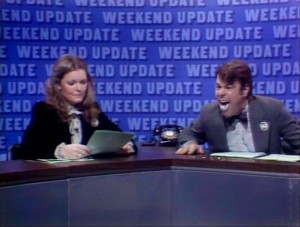
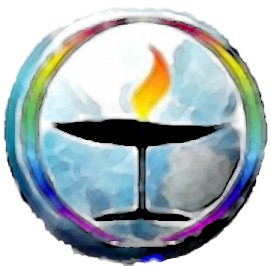 In her blog piece
In her blog piece 